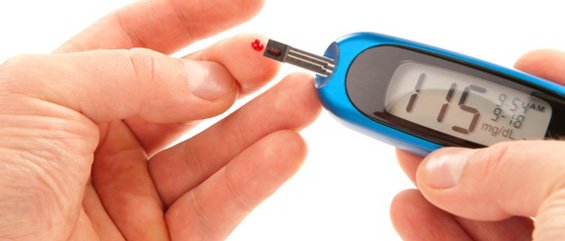Without sugar your brain cannot function. That’s why you always need to have a certain amount of sugar in your blood stream. When you eat a meal, your stomach digests that food and sugar goes into your blood stream. That causes your blood sugar levels to elevate.

If your blood sugar falls too low, it can be very dangerous because your brain would not be able to function properly. On the other hand, if your blood sugar level goes too high, it will cause nerve damage. So keeping your blood sugar levels in an ideal, optimal range is crucial. Not “Too Much” and not “Too Little”.
After eating a meal, your blood sugar level actually goes much higher than the amount of sugar you normally need. So what happens then is, your body stores the excess sugar in your liver cells, your muscle cells and in your fat cells. When the body stores excess sugar, your blood sugar levels go back to normal again.
Think of Insulin as a Key That Opens a Lock
When your blood sugar level is “Up”, your pancreas secretes a hormone named insulin. The insulin’s job is to help your body store sugar. Let me give you a simple example to make it easier for you to understand how insulin helps your body to lower the blood sugar levels.
The way insulin does this is, it attaches to the outer layer of different cells e.g. liver cells, muscle cells and fat cells. When Insulin attaches to the cells, it works pretty much like a key that opens up a doorway. Resultantly, the outer layer of a cell opens up like a little window that allows sugar to come in. Once your blood sugar level goes back down to the desired range, your insulin levels go back down again.
It’s Almost like a Bank Account for Sugar
After a while, your blood sugar levels go down again because your body and brain have used the sugar from your blood stream. This is when your body releases another hormone named “glucagon”. What Glucagon does is, it goes back to all the cells of your body, unlocks them and gets the sugar back.
Your liver cells, your muscle cells and your fat cells are like bank accounts to hold sugar. When blood sugar levels are too high, your body puts the excess sugar in the bank and when your blood sugar levels fall too low, the body takes sugar out of the bank to ensure an uninterrupted supply of sugar to the brain. So this is how your body properly regulates the blood sugar levels throughout the day.
Leave A Comment